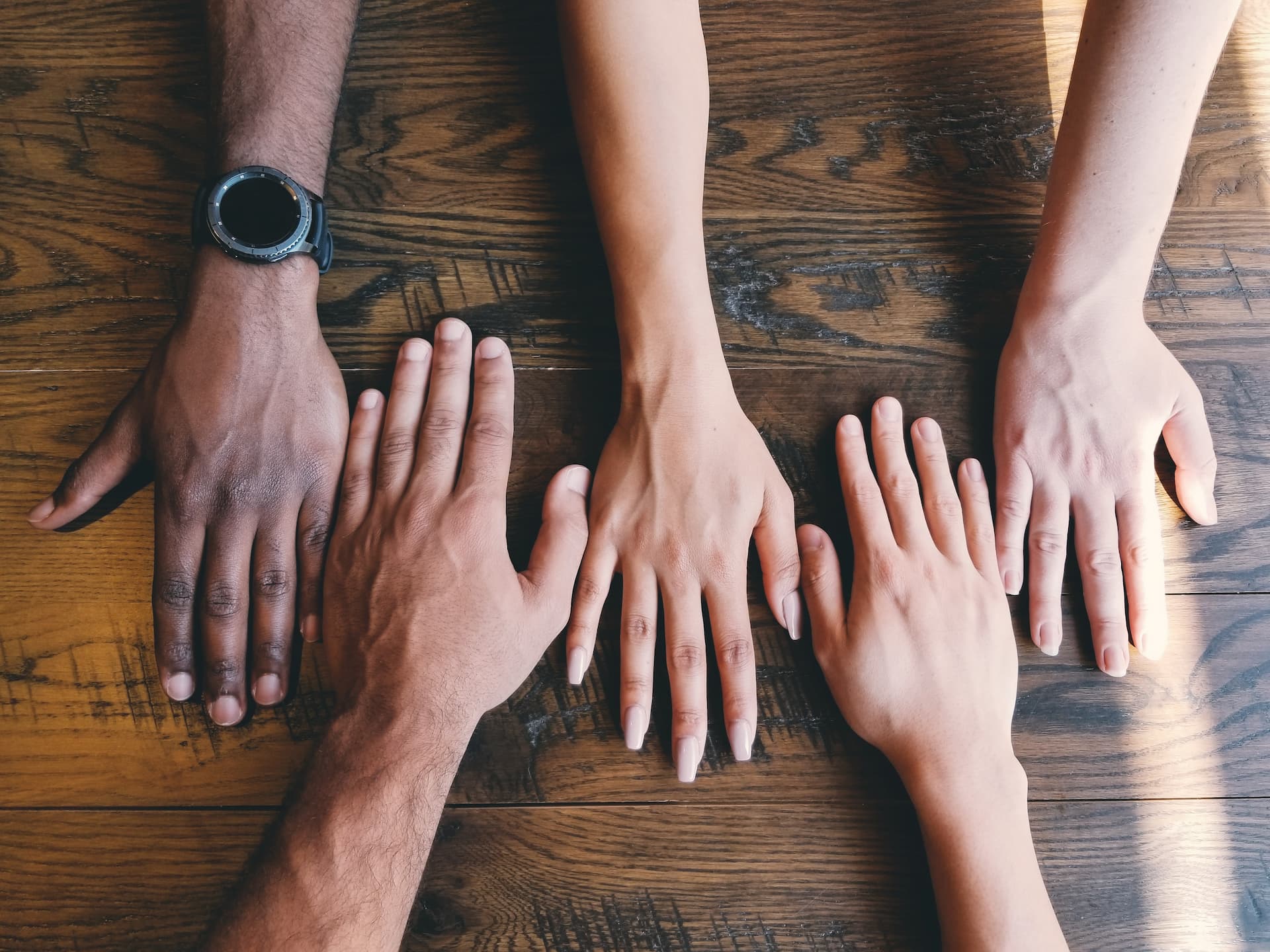Mental health in an unequal world: World Mental Health Day 2021
Sunday, October 10th marks World Mental Health Day, as recognised by the World Health Organisation.
The World Federation for Mental Health has set the theme for this year as ‘Mental Health in an Unequal World’.
The meaning behind this year’s campaign is to focus on the issues that perpetuate mental health inequality locally and globally.
Many people with mental illnesses do not receive the treatment they need or deserve. Additionally, a general stigma surrounding mental illnesses and treatment still persist.
The ongoing COVID-19 pandemic has also highlighted the effects of inequality on health outcomes across the world.
“We all have a role to play to address these disparities and ensure that people with lived experiences of mental health are fully integrated into all aspects of life,” says Professor Gabriel Ivbijaro, MBE JP and WFMH Secretary-General.
Below, mental health experts at Nightingale Hospital share their thoughts on this year’s theme.
Professor David Veale, Consultant psychiatrist
The pandemic has had a devasting impact on anxiety disorders, especially in young people with obsessive-compulsive disorder and health anxiety. At first, some people with OCD quite liked everyone wearing a mask or washing their hands, but the isolation and other factors have made their symptoms worse in the long term.
A key issue for them is the difficulty in tolerating uncertainty or not knowing what will happen. This leads to more checking and distress as it creates more doubts.
Demand for services has increased and many services are struggling. Some people have preferred the opportunity for remote CBT, but most people and therapists have found it less helpful compared to face-to-face therapy. It will take several years to clear up the mess and just get back to the pre-pandemic state.
Richard Turrell, Addiction therapist
Perhaps owing to the medical model which has long been applied to addiction, it is sometimes not even viewed as a mental health condition, but as an issue of poor choices, moral failings and physical dependencies. Thankfully, this has changed somewhat, but we still have a long way to go.
Addiction, and addicted people, perhaps mean that society is confronted by its’ own failings in a multitude of ways. As a result, it is easier to stigmatise or demonise such individuals as ‘weak’, ‘stupid’ or ‘bad’; rather than look at the deeper issues within different cultures, communities or families that contribute to someone developing an addiction as their best effort to cope with their life at that time.
Extensive cuts in funding for substance misuse services mean that this problem is not going away, and inequality in mental health treatment is perhaps nowhere more evident. Recent closures mean that currently there is not a single public-sector drug and alcohol detoxification centre open in London. As someone whose personal recovery from addiction took place very much in grass-roots treatment settings, this is a major concern.
Dr Julius Bourke, Consultant neuropsychiatrist and liaison psychiatrist
There remains a remarkable disparity between what is considered to be ‘physical’ and mental health. Yet the two cannot be dissociated: the physical is dependent upon the mental and the mental upon the physical.
The importance of World Mental Health Awareness Day is in its capacity to raise awareness of the effects of conditions affecting mental health and, reciprocally, the impact of poor mental health upon physical wellness. The pandemic teaches us nothing if not this: Those left with enduring symptoms have not only had to endure the persistent physical ravages of the virus, but problems with anxiety and sleep impairment, fatigue and cognitive symptoms never previously experienced. The lockdowns have left many in a state of worse physical fitness and greater debilitation, but with greater anxiety, low mood and poor sleep. These are interlinked and require paralleled consideration for complete rehabilitation and a return to normal life.
As psychiatrists and medical specialists expertly qualified in considering all of these domains, we have long since been aware of the importance of these interconnected symptoms and the neurobiological basis for them has become clearer now than ever before. Yet the stigma attached to seeking appropriate help remains and so too does the immovability of symptoms as a consequence, irrespective of class, creed or colour.
Above all else, at this time and following the past 18 months, it is this level of awareness that mental health day should seek to imbue: There is no mental health without physical health and there is truly no physical health without mental health. This must be celebrated and disseminated, and the obstructions to seeking appropriate and individually tailored care broken down, for all.
Dr Shamila Moodley, Consultant psychiatrist
For this World Mental Health Day, I would hope we can view mental health on the same wavelength as physical health.
We should view ourselves holistically, as our ‘mental well-being’ doesn’t function in isolation. If we look after ourselves in the whole sense, we are somewhat closer to better mental health.
The fact there is a disparity between how we deal with physical and mental health is disappointing. However, I feel there are positive changes happening and the stigma is reducing, so hopefully, in the future, the way we treat both issues will be more equal.
Dr James Arkell, Consultant psychiatrist
Locally and globally, we are confronted with inequalities due to socio-economic status, race and ethnicity, sexual orientation, and gender identity. In many countries across the world, people are denied basic human rights. All these inequalities can have a significant impact on people’s mental health.
Due to these disparities, many groups find themselves unable to access appropriate mental health treatment. As one example, cultural bias, discrimination, and stigma are thought to significantly affect the mental health assessments of men within the black community. Patients in many vulnerable groups are often subject to culturally insensitive assessment and treatment; and thus, are at a greater risk of significant self-harm and suicide. This group includes members of the LGBTQ+ communities and South Asian women. In the UK, suicide is the highest cause of death among men under the age of 45.
In addition, there has been a consistent underfunding of mental health services in comparison to those for physical health. In 2011, the amount spent on cancer research was £521 million, resulting in approximately £1,571 per cancer patient. The average spent on mental health was £115 million, equating approximately to £9.75 per adult with a mental health problem. The differential speaks for itself. Many key services, including inpatient addiction services in London, have been completely closed. Even more detrimental, the continued stigma surrounding mental illness remains
The COVID pandemic has affected the world in a myriad of ways. Overall, it has illustrated how closely interwoven social inequality and health inequality are, on so many levels. This has been reflected in the differential impact of the pandemic on mental health.
As Professor Gabriel Ivbijaro, WFMH Secretary-General has said:
“We are again in the midst of another global crisis that is resulting in widening health, economic and social inequalities. The 2021 World Mental Health Day campaign provides an opportunity for us to come together and act together to highlight how inequality can be addressed to ensure people are able to enjoy good mental health.”
Charlotte Parkin, Psychotherapist
Why is there a stigma towards some mental health conditions (such as addiction) compared to others (such as anxiety)?
This is a topic I am passionate about, particularly in relation to addictions and personality disorders. Though using a diagnosis such as ‘addiction’ or ‘personality disorder’ can be a useful heuristic when talking amongst professionals, I have observed it can sometimes cause resistance to treatment and miscommunication/misunderstanding amongst the greater population.
Most people will have an image of what they think addiction or a personality disorder would look like. For some, it can provide a sense of comfort and insight to know there is a commonly understood set of symptoms for their experience. However, once allocated this term, one may lose the essence of their personal identity. One can become a condition, rather than a person who has had a unique lived experience.
For some, it may even serve as a way to remain marginalised and dependent on professional support. For others, the fear of being judged if displaying these symptoms will prevent them from seeking help at all.
I am not saying the terms ‘addiction’ and ‘personality disorder’ do not help inform the direction of treatment and aid a sense of belonging and identification amongst those suffering, however, I question the risk of oversimplifying a set of symptoms when addressing our clients. For many of those people seeking treatment, there will be a mixture of presentations which could include addiction, personality disorders, mood disorders, anxiety and depression.
In my experience, it is always best to start by being curious about what is ‘right’ with the individual; and what was their unique experience and presupposition that led them to seek your help.
Dr Nathan Anthony, Consultant psychiatrist
The unequal mental health toll of the pandemic from a neurodiversity point of view.
The pandemic has been the perfect storm for clients with neurodiversity, for example, ADHD and autistic spectrum disorders. The lack of individual and societal stimuli and lack of social interaction, has caused some high-functioning clients with undiagnosed ADHD/ASD traits to struggle. In turn, they are presenting with comorbid complex mental health difficulties, including addiction.
Often, the underlying neurodiversity is not recognised and they may not always receive optimal treatment. The waiting times for ASD/ADHD assessments in the NHS can be up to several years, which means this client group and those around them continue to struggle.
Dr Miriam Dookhun, Therapist
Mental health is not stagnant and it can change as life progresses and changes.
The COVID-19 pandemic has highlighted this. Lockdowns across the globe have shown that some people have developed new mental health problems, whilst many of those with existing mental health difficulties have talked about them worsening.
Mental health is a human right, and there is no health without mental health.
We must continue to work to combat the stigma around mental health difficulties and have a greater investment in and greater access to mental health care everywhere for everybody.
Nobody should be denied access to mental health care.
Diana Dumitrasc, Assistant psychologist
So far, we have established and understood that cultural diversity is a driving factor in influencing the many aspects of mental health. By integrating this cultural knowledge, we are now able to understand better how one’s culture can influence the symptoms of depression, for instance. Therapy is not and should never be a one-size-shoe-fits-all approach. Yet, to this day, the influences of western cultural approaches tend to be ‘favoured’ in healthcare settings, including the treatment of mental health conditions. What does this say about the directions we head towards?
We have seen that human nature is bound by phenomenological subjectivity. ‘What’s pleasant to me is not to you’, meaning each individuals experience is unique.
In this way, a person’s cultural background is a feasible layer to this variability. In addition, a patients’ way of seeking help is influenced by their cultural upbringing. One example could be that when seeking mental health support, Asian patients are less likely to present their emotional symptoms, and tend to focus more on physical discomforts.
Fitting all patients in the same box can have detrimental effects on people’s mental health. There is hope that progress is being made towards developing an inclusive cultural model, however, it is also down to us as healthcare professionals to ensure that culture and background are depicted in patient’s assessments, diagnoses and treatment.
We need to remind ourselves that the intersection of mental health and culture is not straightforward. As mental health advocates and professionals, it is essential to commit to developing a greater insight into patient’s conditions and needs in relation to their cultural background, to steer clear of further inequality and exclusion in mental healthcare.
Relevant specialists
-

Professor David Veale
Lead consultant for OCD and related disorders at Nightingale Hospital
-

-

-

-








